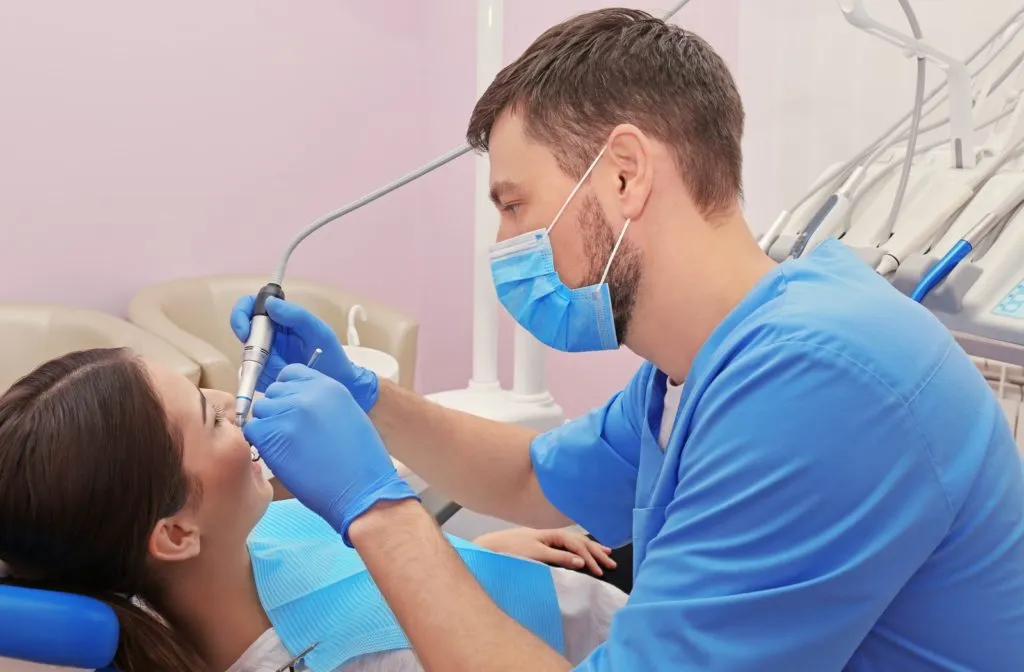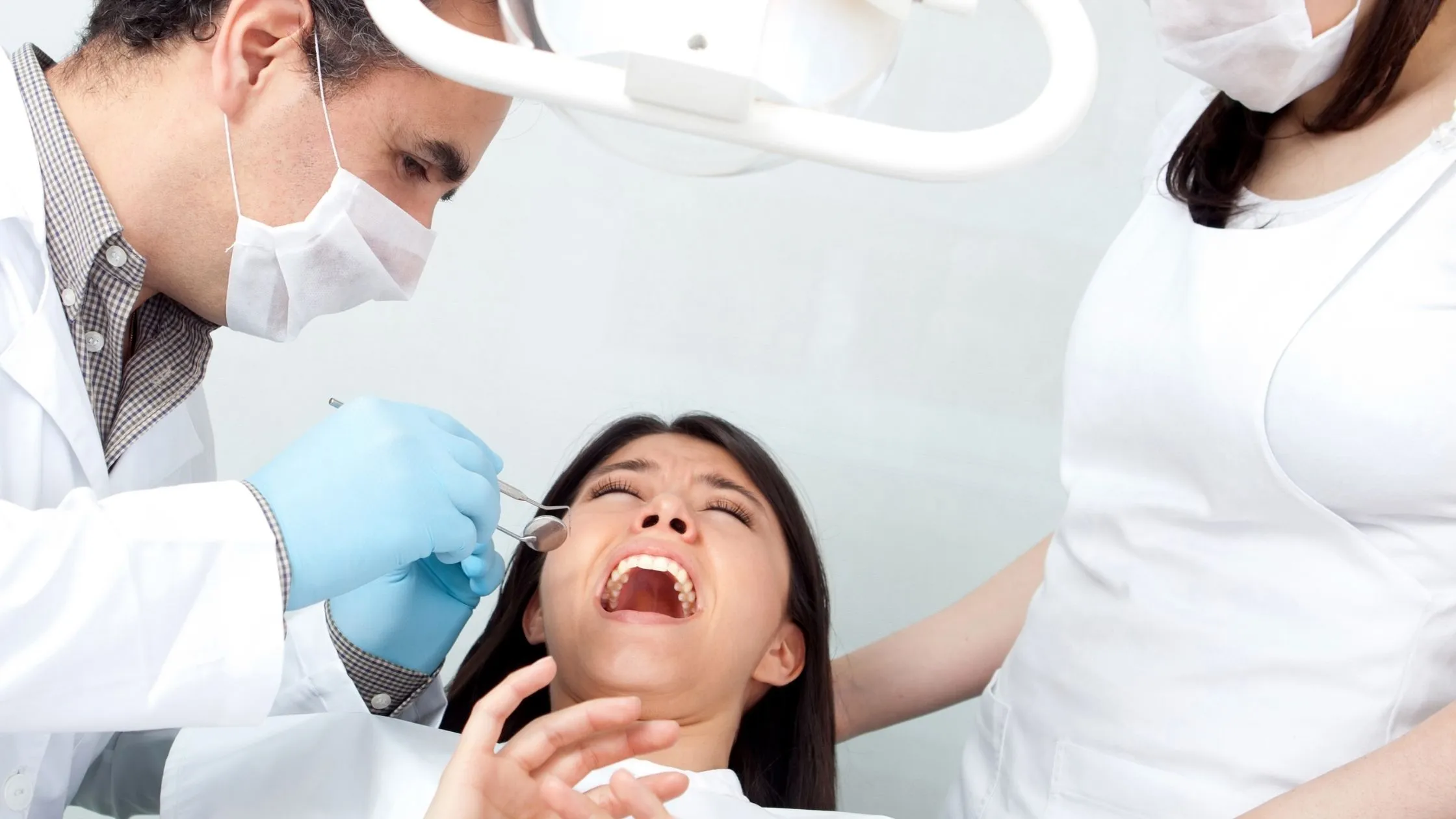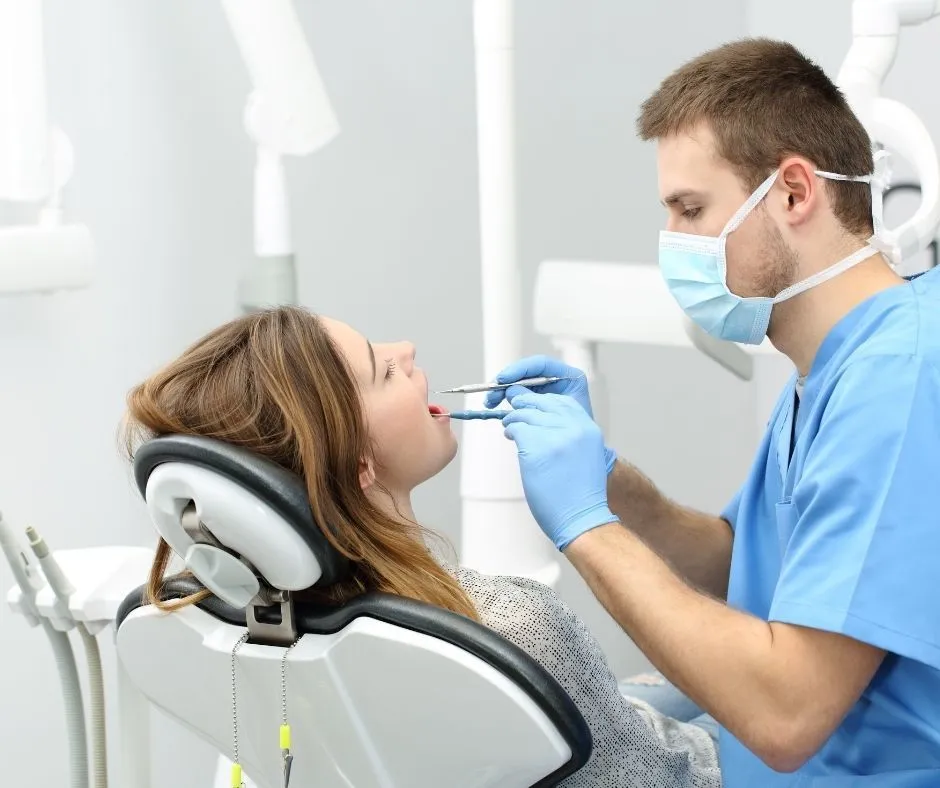
Why Is Immediate Dental Care from an Emergency Dentist Important?
Imagine this it’s late at night, and a sharp, throbbing toothache keeps you awake. Or perhaps you’re playing sports, and a sudden fall knocks out your tooth. These moments are more than inconvenient; they are dental emergencies that demand immediate attention.
Dental emergencies aren’t just about managing pain they’re about saving teeth, preventing infections, and protecting your long-term oral health. Waiting too long can make the difference between a simple treatment and permanent damage.
That’s where an emergency dentist comes in. Trained to handle urgent and unexpected oral health issues, emergency dentists provide fast relief and immediate solutions to restore comfort and prevent complications.
What Is a Dental Emergency?
A dental emergency refers to any oral condition that requires urgent attention to stop bleeding, relieve severe pain, or save a tooth. Unlike routine dental issues, emergencies cannot wait for a scheduled appointment.
Common examples include severe tooth pain, cracked or broken teeth, knocked-out teeth, lost fillings or crowns, abscesses, or uncontrollable bleeding. Recognizing these situations early helps ensure timely treatment and prevents lasting damage.
Understanding Different Types of Dental Emergencies
Severe Toothache
A constant, throbbing toothache often signals deep decay or infection within the tooth pulp. Left untreated, it can develop into an abscess that spreads infection to the surrounding tissues.
Broken or Cracked Tooth
A chipped or fractured tooth can expose sensitive nerves, leading to extreme pain or infection. Immediate attention prevents further breakage and restores the tooth’s integrity.
Knocked-Out Tooth
A knocked-out tooth requires urgent care within 30 to 60 minutes. The quicker it’s reimplanted, the higher the chances of saving it.
Lost Filling or Crown
When a filling or crown comes loose, it leaves the underlying tooth vulnerable to bacteria, sensitivity, and decay. Temporary protection and prompt repair are vital.
Dental Abscess or Swelling
An dental abscess is a pocket of infection that forms near the root or gumline. It often causes swelling, fever, or bad taste in the mouth and requires drainage and antibiotics.
The Role of an Emergency Dentist
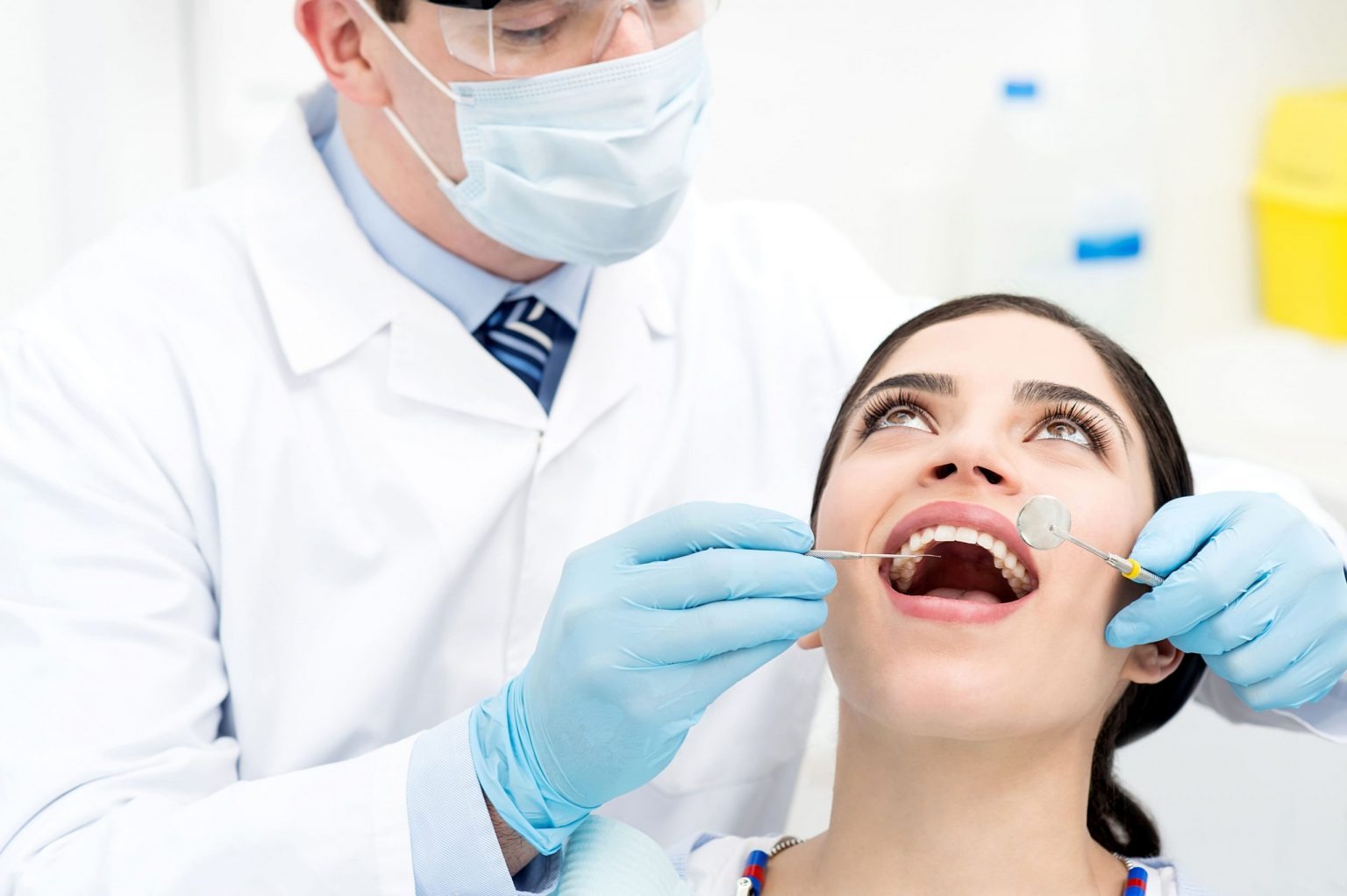
Emergency dentists specialize in providing rapid, effective care when dental issues can’t wait. Their goal is to relieve pain, prevent infection, and stabilize the situation until full treatment is completed.
They perform a quick diagnosis using X-rays or visual examination and then provide immediate care such as drainage, fillings, extractions, or temporary restorations. Many emergency dental clinics also operate during evenings and weekends to handle urgent cases promptly.
Why Immediate Dental Care Is So Important
Preventing Worsening Conditions
Even a small cavity or minor pain can escalate quickly if ignored. Early treatment stops infections from spreading, preserves teeth, and minimizes future costs.
Relieving Pain Fast
Emergency dentists can provide instant relief through local anesthesia, drainage, or nerve treatment. Quick pain management allows patients to return to their normal activities sooner.
Saving Natural Teeth
Time is critical when dealing with dental trauma. Immediate intervention can often reattach or restore teeth that might otherwise be lost.
Avoiding Systemic Infection
A dental abscess left untreated can spread bacteria into the bloodstream, leading to serious health conditions. Emergency care ensures infections are stopped before they cause wider harm.
Protecting Overall Oral Health
By addressing the root cause early, emergency dental treatment safeguards the gums, bone, and surrounding teeth supporting long-term oral health and function.
Common Emergency Dental Treatments
Tooth Extraction
When decay or infection destroys too much of the tooth to be saved, extraction prevents the infection from spreading. Afterward, the area is cleaned and treated to promote healing.
Root Canal Therapy
In cases of abscessed or severely decayed teeth, root canal treatment removes the infected tissue while preserving the natural tooth.
Filling or Crown Replacement
If a filling or crown is lost, dentists can provide immediate temporary or permanent restorations to protect the exposed tooth.
Reimplantation of a Knocked-Out Tooth
Emergency dentists can carefully reinsert a dislodged tooth into its socket if treatment occurs within the critical first hour.
Infection Control and Abscess Drainage
Dentists may drain pus and prescribe antibiotics to control infection and relieve pressure and pain.
Pain and Swelling Management
Painkillers, anti-inflammatory medications, and cold compresses help patients remain comfortable as healing begins.
Immediate Steps Before Reaching the Dentist
Handling a Knocked-Out Tooth
Pick up the tooth by the crown (not the root), rinse gently if dirty, and keep it moist in milk or saliva until reaching the dentist.
Managing Bleeding
Apply clean gauze or a damp cloth to the area and maintain gentle pressure. If bleeding persists after 15–20 minutes, seek immediate care.
Reducing Swelling
Apply a cold compress to the outside of the cheek for 10–15 minutes to control swelling and numb pain.
Avoiding Common Mistakes
Do not apply aspirin directly on gums it can burn soft tissue. Avoid poking the affected area or using sharp tools to remove debris.
Long-Term Benefits of Seeking Emergency Dental Care
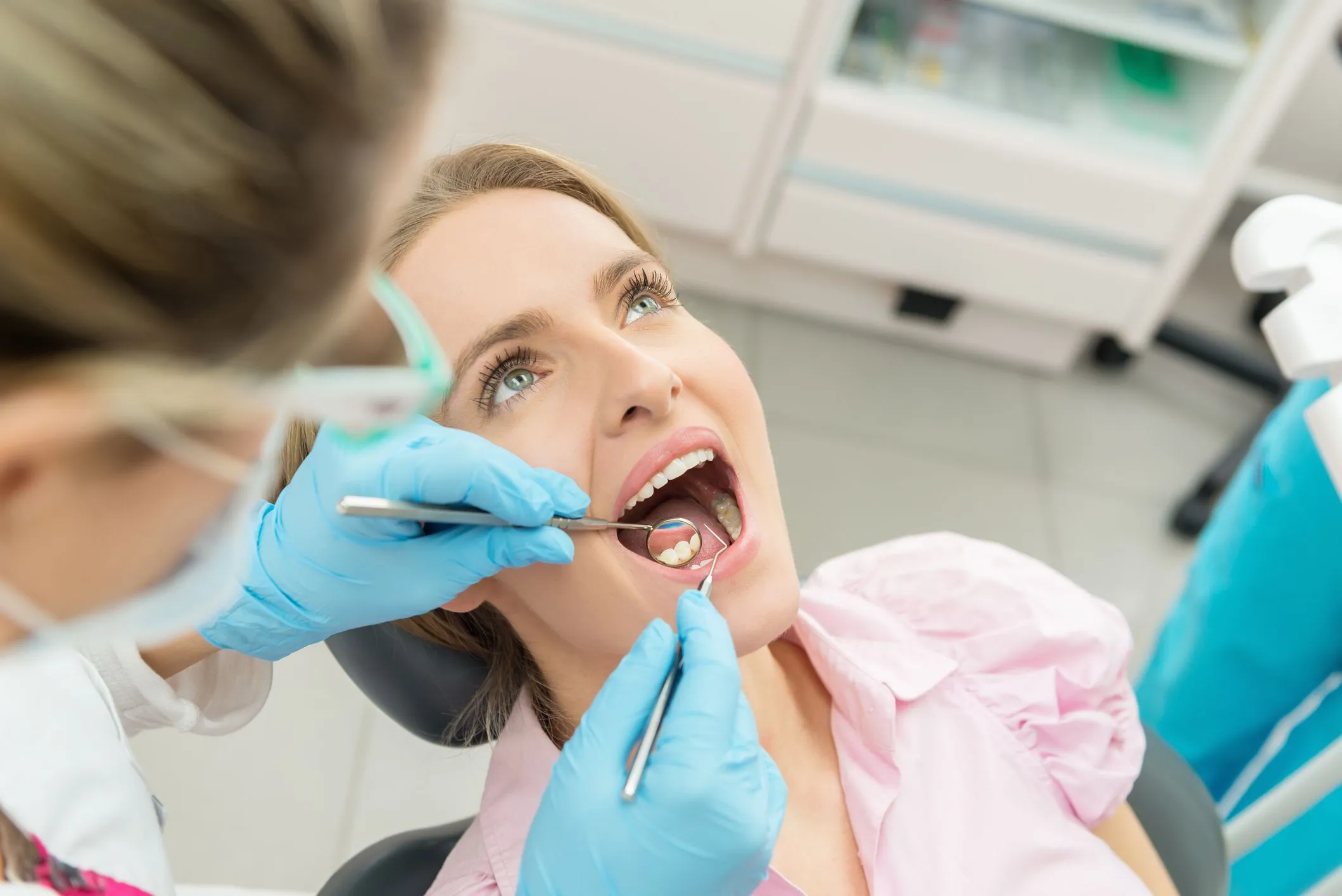
Preserving Oral Health
Quick treatment ensures that damage doesn’t spread, saving natural teeth and supporting gum and bone health.
Saving Money Over Time
Early intervention prevents minor issues from becoming major ones that require costly treatments such as implants or bridges.
Restoring Confidence and Comfort
Emergency dental care restores normal function and appearance, allowing patients to eat, speak, and smile comfortably again.
Establishing Ongoing Dental Care
After emergency treatment, follow-up visits help maintain health and prevent future problems. Building a relationship with your dentist ensures you’re always prepared for unexpected issues.
When to Go to the Emergency Room Instead
Understanding the Difference Between Dental and Medical Emergencies
While many dental emergencies can be handled by an emergency dentist, certain situations cross into the realm of medical urgency. These cases usually involve severe trauma, uncontrollable bleeding, or infections that threaten your overall health. Knowing when to go directly to the emergency room can make the difference between a safe recovery and life-threatening complications.
Severe Facial or Jaw Injuries
If you’ve suffered an accident that causes extensive facial trauma such as a broken jaw, deep cuts, or severe swelling head straight to the emergency room. These injuries may involve fractures, soft tissue damage, or internal bleeding that require immediate medical attention and possibly imaging tests like X-rays or CT scans. Once your condition is stabilized, you can follow up with a dentist or oral surgeon for restorative treatment.
Uncontrolled Bleeding
Bleeding from the mouth that doesn’t stop after applying pressure for 10–15 minutes is a serious concern. This may indicate a deep laceration, a severely injured tooth socket, or damage to blood vessels. Continuous or heavy bleeding can lead to shock and requires prompt emergency care. Hospital staff can manage blood loss, suture wounds, and provide the necessary medication to stabilize your condition.
Swelling That Affects Breathing or Swallowing
Severe swelling in the mouth, jaw, or throat can be a sign of a spreading infection, allergic reaction, or abscess that has extended to deeper tissues. If you experience difficulty breathing, swallowing, or speaking, it’s critical to go to the emergency room immediately. These symptoms could indicate that the infection is obstructing your airway, which can become life-threatening if untreated.
Signs of a Serious Infection or Abscess
Infections that cause fever, chills, or significant swelling of the face or neck should be treated as medical emergencies. Such infections can spread rapidly into the bloodstream, leading to conditions like sepsis or Ludwig’s angina both of which are life-threatening. The ER team can administer intravenous antibiotics, drain abscesses, and ensure the infection is controlled before referring you to a dental specialist.
Preventing Future Dental Emergencies
Maintain Regular Checkups
Scheduling routine dental checkups every six months is one of the most effective ways to prevent dental emergencies. These visits allow your dentist to spot early signs of decay, infection, or gum disease before they cause pain or damage. Regular professional cleanings also remove hardened plaque and tartar that brushing alone can’t reach, keeping your mouth healthy and reducing the risk of sudden problems.
Practice Good Oral Hygiene
A consistent oral care routine is your first line of defense against dental emergencies. Brushing twice daily with fluoride toothpaste strengthens enamel and removes harmful bacteria, while flossing helps clean between teeth and along the gumline areas prone to cavities and infection. Incorporating an antibacterial mouthwash can further reduce germs and freshen breath. Maintaining this routine ensures your teeth and gums stay strong and resilient.
Protect Your Teeth During Sports
Many dental injuries occur during sports and recreational activities. Wearing a properly fitted mouthguard can significantly lower the risk of chipped, broken, or knocked-out teeth. Custom mouthguards, designed by your dentist, offer better comfort and protection compared to store-bought versions. Helmets and face shields are also essential for high-impact sports like football, hockey, and martial arts to prevent facial injuries.
Avoid Using Teeth as Tools
Using your teeth to open bottles, tear packaging, or bite into hard objects can lead to cracks, chips, or fractures. Even seemingly harmless habits like chewing on ice, pens, or fingernails can weaken enamel over time. Always use the proper tools for tasks and treat your teeth with care they’re meant for chewing food, not heavy-duty work.
Watch What You Eat
A balanced diet plays a crucial role in maintaining strong teeth. Limit sugary snacks and acidic drinks that can erode enamel and cause cavities. Instead, choose foods rich in calcium, phosphorus, and vitamin D to strengthen your teeth and bones. Crunchy fruits and vegetables like apples and carrots also help clean teeth naturally while stimulating saliva production, which neutralizes harmful acids.
Conclusion
Dental emergencies often strike when you least expect them during a meal, at night, or over the weekend. But how you respond in those first few minutes can determine whether you save or lose a tooth. Acting quickly, staying calm, and contacting an emergency dentist immediately are the most effective steps you can take to protect your oral health. Immediate dental attention doesn’t just stop the pain; it prevents infections from spreading and preserves the structure of your natural teeth. The difference between prompt and delayed care can mean avoiding complex procedures like root canals or implants in the future. By seeking treatment right away, you’re investing in both your comfort and long-term oral health.
Emergency dentists have the tools, skills, and experience to handle urgent cases efficiently. From reattaching a knocked-out tooth to draining an abscess or restoring a broken crown, they focus on fast relief and lasting solutions. Their goal isn’t just to treat the emergency it’s to help you recover fully and prevent the issue from returning. Being prepared is also key. Keep your dentist’s emergency contact number handy, store a small dental first-aid kit at home, and know the basic steps for handling common emergencies such as knocked-out or chipped teeth. Awareness and preparation ensure that you can respond effectively, even under pressure.
